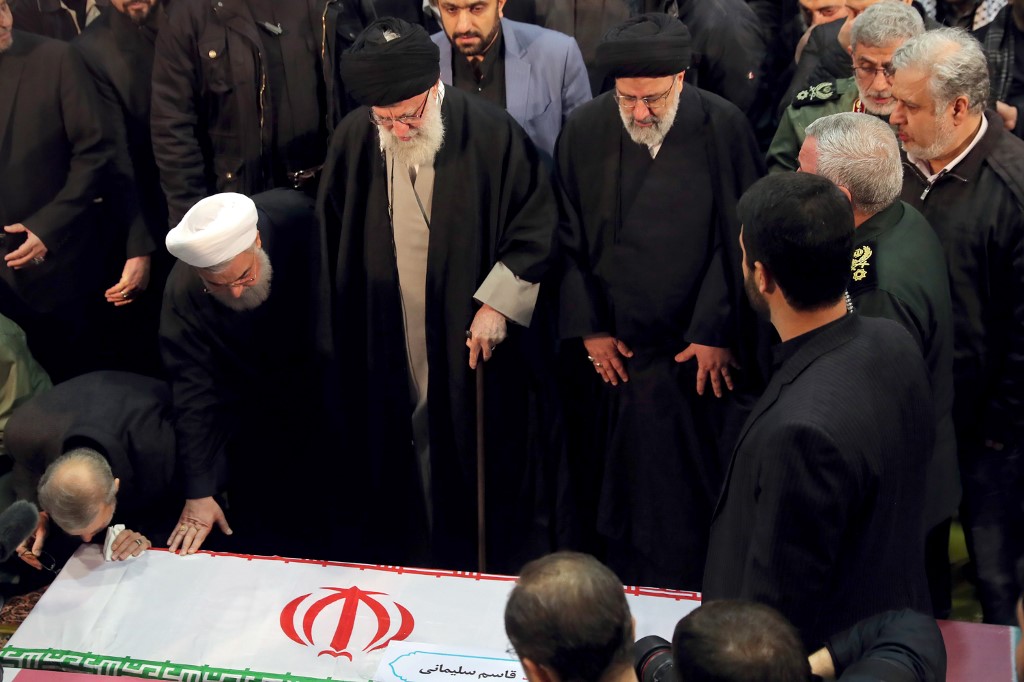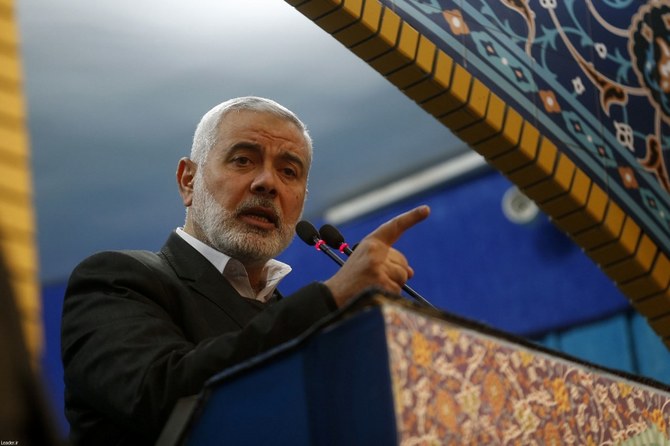TEHRAN: The leader of the Palestinian militant group Hamas is in Tehran is attending the funeral of an Iranian general killed in a US airstrike in Iraq.
Ismail Haniyeh, in an address to Iranian mourners, described the slain general, Qassem Soleimani, as “the martyr of Jerusalem.”
Haniyeh vowed that Palestinian militant groups, including his group that controls Gaza, will walk Soleimani’s way “to confront the Zionist project and the American influence.”
Haniyeh’s visit to Iran was surprising. In December, Egypt allowed him to travel for his first regional tour since his 2017 election into the Hamas leadership on the condition that he does not visit Iran, according to Arab and Israel media reports.
Iran’s Supreme Leader Ayatollah Ali Khamenei has prayed over the caskets of the top Iranian general and others slain in a US airstrike near the Baghdad airport last week.

(AFP)
The general’s successor, Esmail Ghaani stood near his side, as did Iranian President Hassan Rouhani and other top leaders in the Islamic Republic.
Khamenei wept at one point during the traditional Muslim prayers for the dead. The crowd and others wailed. Afterward, the crowd screamed: “Death to America!”
Earlier on Monday, the slain general’s daughter, Zainab Soleimani, threatened US military forces in the Middle East at a funeral procession for her father.
“The families of US soldiers in the Middle East will spend their days waiting for death of their children,” she said.
















